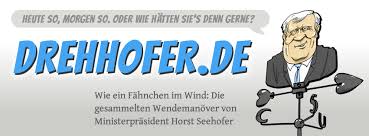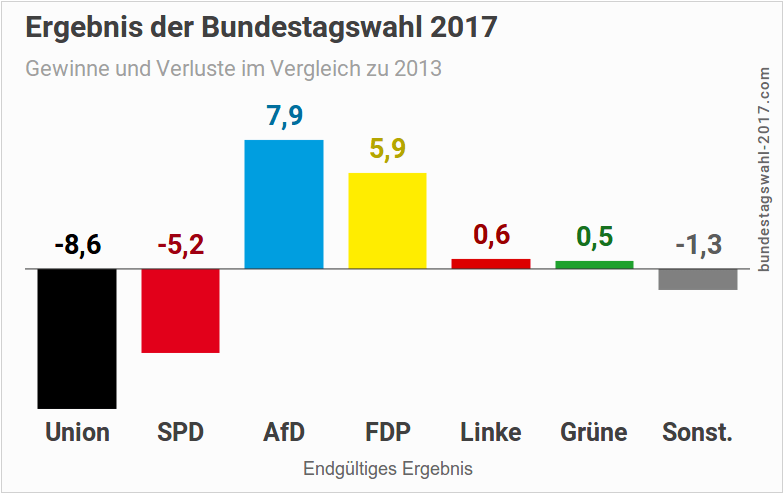The politicians
The enormous problems mentioned in Part 4 and Part 5 of this article series are a result of German – and in general, European Union (EU) – politics. Though some of these problems decrease through the passage of time, many others remain and are, in fact, growing.
Many of Europe’s leaders seem to understand that the mass migration that they enable or even support is not good for Europe. This is why there are a number of half-measures to decrease the flow of asylum seekers to Europe. One example is the agreement between the EU and Turkey, according to which Turkey will keep refugees from crossing over to Europe, in exchange for money from the EU. In essence, this agreement means that the EU outsources the defense of its borders to Turkey.
How unstable and short-sighted this agreement is has been proven several times, when Turkey threatened to allow masses of refugees to cross its borders to Europe, in order to force the EU to give Turkey concessions on this or that issue.
But, from the EU politicians’ perspective these pitiful half-measures are better than effectively protecting the borders of the EU. Why?
A turn to the left
As we have seen in Part 3 of this series, there are left-wing politicians who perceive a growing “diversity” of the European population as a good thing. They support mass migration on ideological grounds.
These politicians are, however, in the minority and in most European countries they are in the opposition. The governments are mostly in the hands of centrist politicians. However, they essentially follow the same policies as those advocated by left-wing politicians.
This turn toward the left on the issue of immigration – but also on other issues like the climate – by centrist parties is quite recent. Germany can provide an example for this.
In 2010 German Chancellor Angela Merkel gave a talk at a meeting of her Christian Democratic Union party. The newspaper The Guardian described her talk in an article like this:
Speaking to a meeting of young members of her Christian Democratic Union party, Merkel said the idea of people from different cultural backgrounds living happily “side by side” did not work.
She said the onus was on immigrants to do more to integrate into German society.
“This [multicultural] approach has failed, utterly failed,” Merkel told the meeting in Potsdam, west of Berlin, yesterday.
Five years later, in 2015, the same Angela Merkel opened Germany’s borders for more than 1 million asylum seekers from the Middle East, announced the Willkommenskultur (“Welcome culture”) and famously said about the huge problems already appearing: “Wir schaffen das” (“We can do that”).
One week before the meeting of the Christian Democratic Union in 2010, Horst Seehofer, the then premier of Bavaria and a member of the Christian Social Union, another conservative party, called for a halt to immigration for Turks and Arabs, mentioning the difficulties they have in integrating.
Nine years later, in September 2019, Seehofer, by then as Interior Minister of Germany, announced – apparently as a good-will gesture – that Germany will take 25% of all asylum seekers picked up in the Mediterranean. As a result, he not only earned the title of “refugee savior”, but also proved that the mock name “Drehhofer” (roughly: “Turncoat”), given to him already years before because of the many 180 degree turns in his political positions, was well deserved.

Merkel or Seehofer receive support from many members of their respective parties for the new, leftist positions they now represent. Merkel received standing ovation from the delegates of the congress of her Christian Democratic Union in November 2019.
Merkel’s new position on immigration has resulted in disastrous losses for her party both at the German Federal Elections in September 2017. The following chart shows the losses and wins for political parties at those elections, as compared to the elections four years earlier, in 2013.

The party called “Union” is a centrist coalition of Merkel’s Christian Democratic Union and Seehofer’s Christian Social Union. “SPD” is the Social Democratic Party, and “AfD” is Alternative für Deutschland (Alternative for Germany).
The Union, losing 8.6% of the votes, as compared to 2013, was not the only big loser of this election. The Social Democratic Party, another supporter of mass immigration, lost 5.2%, and had its worst election result since World War II.
The big winner was Alternative für Deutschland, the single mass-immigration-critical party in the German Parliament.
A similar picture emerged two years later, at the Federal State Elections in 2019. In Thuringia, Merkel’s party, the Christian Democratic Union, lost 11.7% of the votes, as compared to the previous elections in 2014. The Alternative für Deutschland, in contrast, increased its share by 12.8%.
But such losses in popularity is apparently not enough to result in a policy change and both Merkel and her party essentially continue to stick to the same policies that Merkel initiated in 2015. How can this self-damaging behavior be explained by these political parties?
What explains this turn to the left by centrist parties?
One reason explaining the behavior of centrist politicians – not only regarding immigration issues but also other issues like the “protection” of climate – is a shift towards the left in the general mindset of European populations. This shift affects the whole population, but it applies to the elites – academia, media and politicians – the most. Political positions which were a few years ago embraced by centrist or conservative political parties are now seen by those same parties as “rightist”, and thus something to be rejected.
This left shift is particularly noticeable in the media – both in the big state media companies like BBC in the UK or the ARD and ZDF in Germany, but also in private-owned media. There are many anecdotal examples for this left-wing orientation of the Western media. Emil Kierkegaard, a Danish researcher investigated this in 16 Western countries (plus Russia). His research results shows that, in fact, a strong left-wing bias exists by journalists in Western media.
Media opinion is, of course, very important for politicians. They want to avoid a bad treatment by the media and they can do that by acting in a way that is popular among journalists. Given the leftist bias among journalists, this will mean supporting leftist, “politically correct”, causes – like mass migration.
One example for this is the behavior of German Chancellor Angela Merkel during the refugee crisis in the summer and autumn of 2015. The German Police had made all preparations necessary to protect Germany’s borders at that time – even the orders were already signed to reject people who try to enter without a passport or without visa. But then, just before the orders were going to be executed, Merkel asked the Minister of the Interior if he can guarantee that “no unpleasant images” result on the borders. The Minister of the Interior could not give that guarantee – and so the German borders remained open for everybody who was able to say “asylum” at the border.
In other words: in order to avoid “unpleasant images” appearing in the media, Merkel was prepared to expose Germany and its people to incalculable risks of all kinds.
Behaving in a “politically correct” manner thus allows politicians to avoid a bad press. In addition, it can also result in rewards of all kinds. One of these is adulation and international recognition. Merkel, for example, became Person of the Year of TIME Magazine in 2015 and received an honorary law degree from Harvard University in 2019.
The EU probably plays an additional role: politicians of the established European parties, like Merkel, are reluctant to stick out their neck and advocate measures which they assume would not look good in the eyes of other politicians in the EU.
Apparently, all these factors outweigh the huge problems these politicians cause for the people who elected them, by supporting mass immigration. Amazingly, they even outweigh the damage to themselves, the catastrophic losses in popularity among voters.
Politics sharply divided
German chancellor Angela Merkel decision to open the German borders for immigrants in 2015 had far reaching effects both on the politics of Germany and on the politics of other countries in the European Union.
The political landscape in Germany became more divided than probably ever since World War II. A sharp left-right divide opened up in the middle of society. The Left is constituted by large sections of the media, most of the academia, most of the political parties, and a majority of the youth. Everything right of these leftists is seen by them as “the Right” which needs to be fought, with whom no talk or cooperation is possible. “The Right” is regularly called “Nazis”, “Fascists” The extreme fringe of this Left is the violent Antifa movement.
The main political representative of “the Right” in Germany is the party Alternative für Deutschland (AfD). This party is the largest opposition party in the German Parliament.
One of the main issues differentiating the AfD from the other parties is mass migration and open borders. There are criticisms against particular Government policies which deal with the effects of mass migration – e.g. about the integration of migrants into German society or about the crime wave which resulted since 2015. But none of the parties sitting in the German Parliament is against Merkel’s policy of open borders – except the AfD. The same is true for the majority of German mass media and large segments of the German youth enthusiastically support policies going even further in the direction of opening the borders.
Members of the AfD are routinely called “Nazis” by left-wing party members. Its members are often attacked, even physically, by violent Antifa activists. For example, AfD member of the German Parliament Stefan Magnitz was beaten so severely that he had to be treated in a hospital. AfD functionary Reinhard Hirche was attacked with a knife. Cars of AfD politicians were burned, e.g. here and here. AfD offices were vandalized or attacked with bombs. Some restaurants don’t serve AfD members, e.g. here and here. There is a long list of such attacks and discriminating treatment incidents.